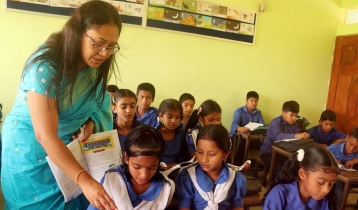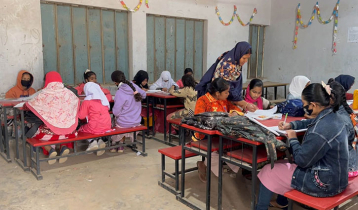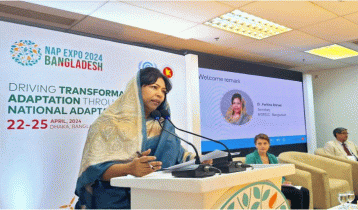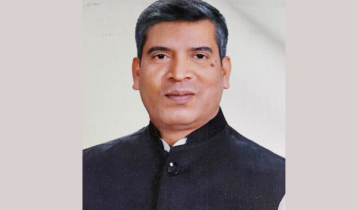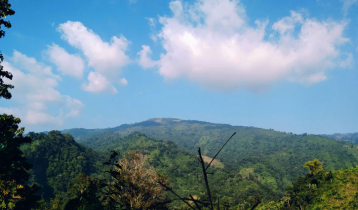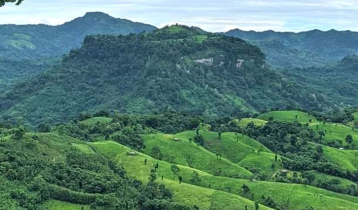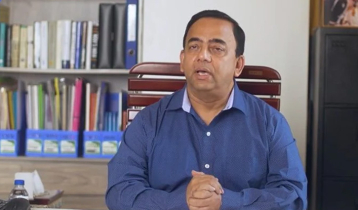Three sonnets of Buddhdeb Basu
Gazi Abdulla hel Baqui || risingbd.com
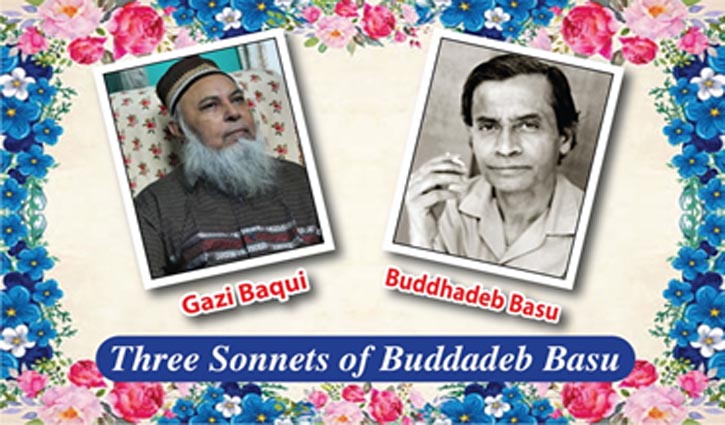
Original: Buddhdeb Basu
Translation: Gazi Abdulla-hel Baqui
(Buddhdeb Basu (1908-1974) was a renowned modern Bangalee poet. He also wrote novels, plays, articles, critical essays, etc. As a poet and translator, he is very popular.)
Hilsa Fish
Asar is discernible across the sky; Bangladesh is overwhelmed with rains.
Along the coasts of the cloud-hued Meghna, the rows of coconut trees are looking
Blurred in rainfall; the century old king’s palace on the distant shore of
The Padma looks unmoved like an aspect of vista at the door-step of abolition.
It is the dead of night, darkness like dense cloud; the rough river
Is tumultuous in whirlpool; the small boats ferry across the shores
With violent motion; cast nets laboriously, those who are half-nude
Pull rope, they are starving, the sole means of food.
Towards the end of night, in Goaland the dark wagons are loaded with
The bright water resources, the heaps of corpses of Hilsa fish,
The huge abundance of death of the profoundest rejoices of the river.
Then in the pale morning, the houses in Kolkata emit the smell of Hilsa-fry;
In the strong pungent mustard oil, from the granary of the wives of clerks.
The rains have set in and the Hilsa festival starts
Sonnet of the Night at 3 pm
The thing which is personal is only holy. The thick evening
Is suffused with soft light; darkness is like the sky surrounded by
The hidden stars on the yellow-pale pages of books;
Or a letter written delayed to a distant friend in bashful sleep at midnight.
Do you not think what sort of beneficent person Jesus was?
Nor was the Buddha, the venerable, chatterbox, and
Industrious deluded president of eighty of an association?
The rightful owner of deliverance.
Those who have already evaded the repeated jumping of the haughty guys,
Fly-whisk and watching, are apathetic, gentle and vagabond.
So, I advise to renounce the world, let it go wherever it would like to go;
Rather be feeble, invisible, inaccessible and deaf to outburst of rapture.
You will benefit more in a woman’s cozy indolence for half an hour than
Dealing with such messages by the attendants, excited with profuse zeal.
Still Life
A golden apple, why have you been here? You will brighten the air
About the red lips, glittered with the flash of teeth in the kiss-touched pot of smile?
Cold, tight, will you create mystery of Konark temple in the fists of hands,
Stuffed with the breasts of a charming lady in the dark?
So much, still it is your beginning. As if autumn is endless.
Smell, sensual pleasure, even contentment is concealed in desirous modesty-vest.
After deriving satisfaction, still feel, more is left; and though it exhausted,
Sensation of thrill does not end, nutrients, benefit. But, is this all?
Thinking this all fall into slumber. But, at times, one or two lusty souls
Are found; plates, lids, the disguise of flower garden—
All they tear away folds over folds, they themselves
Become sky in your mysterious light,
Forests and stars above forests—by beholding all these
We, suddenly shivering, desire to turn into something else.
Gazi Abdulla-hel Baqui is a poet, writer, translator and an academician.
Dhaka/Mukul

